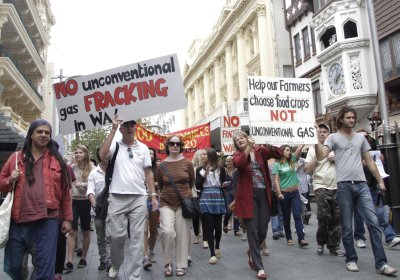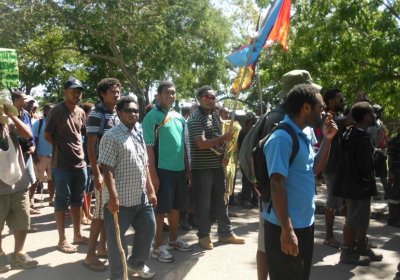Privatisation polices have been stepped up since the end of the war between the Sri Lankan government and the Liberation Tigers of Tamil Eelam in May 2009, says Ranath Kumarasinghe from Sri Lanka's New Socialist Party (NSSP)
Kumarasinghe is features editor of Haraya, a Sinhala language newspaper published by the NSSP. He recently visited Australia to speak at the Marxism 2012 conference, organised by Socialist Alternative in Melbourne over Easter.
919
The statement below was initiated by the Socialist Party of Malaysia (PSM), in solidarity with workers' rights and pro-democracy activist Somyot Pruksakasemsuk ― jailed in April last year under the lese-majeste (insulting the monarch) law. It has been signed by the Australian Socialist Alliance, the Party of the Masses in the Philippines, the Indonesian People's Liberation Party, the Confederation of Congress of Indonesian Unions Alliance (KASBI), Indonesia, and the Labour Party Pakistan .
* * *
Activists have been campaigning to prevent the removal of public housing in the Auckland suburb of Glenn Innes since April 2.
Many Tenants who have lived in the homes for decades have been evicted. Contractors are preparing to remove the homes for a new housing development. The development will reduce public housing, and evicted tenants have not gotten any guarantees of a right to return.
Tenants, local community members and activists in the Mana Party organised to try to stop the removals,. They have peacefully blockaded and occupied the empty houses in protest.
A series of protests, or Hikoi, will take place across New Zealand from April 24 to May 10, under the banner “Aotearoa Not For Sale”.
The demonstrations are being organised against the pro-privatisation, pro-mining and anti-social agenda of the National Party government, led by Prime Minister John Key.
The Hikoi will kick off at the top of New Zealand's north island at Cape Reinga on April 24.
No Fracking WAy held its first rally against fracking and unconventional gas extraction in the state on April 21. The demand was for a moratorium on unconventional gas until it could be proven safe for human health and the environment.
The crisis embroiling the government of Papua New Guinea has taken new turns as sections of the establishment struggle for power. Public outrage has grown against new laws that undermine the country's constitution.
Just days after pledging it would not use the new powers of the Judicial Conduct Act to suspend judges, the government of Prime Minister Peter O'Neill suspended Chief Justice Sir Salamo Injia and Justice Nicholas Kirriwom on April 4.
“April 13, the great day of victory 10 years ago, opened the way to the independence and unity of our Latin America and the Caribbean,” Venezuela's socialist President Hugo Chavez said on April 13. He was speaking during a commemoration of the uprising that toppled a short-lived military coup that aimed to crush the Chavez presidency .
“We showed that a people united will never be defeated.”
Over the past few years it appears that debate and conflict about climate policy has dominated Australian politics. But the appearance is different to the reality.
There is no serious debate between the two big parties about climate change. A serious debate would be grounded in the climate science, which says we must move to a zero carbon economy at emergency speed.
In recent weeks, a boat with more than 120 refugees was forced back to Indonesia under Australian orders, 10 Falun Gong members from China docked at Darwin’s wharves and another boat made several distress calls to Australia before vanishing.
The first boat was on its way to Christmas Island when it began taking on water. A Singapore-flagged ship rescued the 120 Afghan and Iranian refugees onboard and took them back to Merak, Indonesia.
One of the big challenges facing Cuba as it designs climate change adaptation policies is the preservation of its coastal ecosystems against the predicted rise in sea level and increasingly catastrophic extreme weather events.
With the country’s 5500 kilometre of coastline and 4000 cays and islets, almost everyone on the Cuban archipelago feels their life is tied to the sea in one way or another.
“It’s lovely, but it is also dangerous,” said 78-year-old Teresa Marcial, who lives on the coast in Santa Fe, in the northern outskirts of Havana.
Right now, there is an opportunity to slash Australia’s carbon emissions by 5 million tonnes a year in one stroke. The city of Port Augusta in South Australia has all the right conditions to make it Australia’s first baseload renewable energy hub.
The two coal-fired power stations at Port Augusta are getting old. Industry experts say they may be forced to close as soon as 2015.
- Previous page
- Page 2
- Next page





